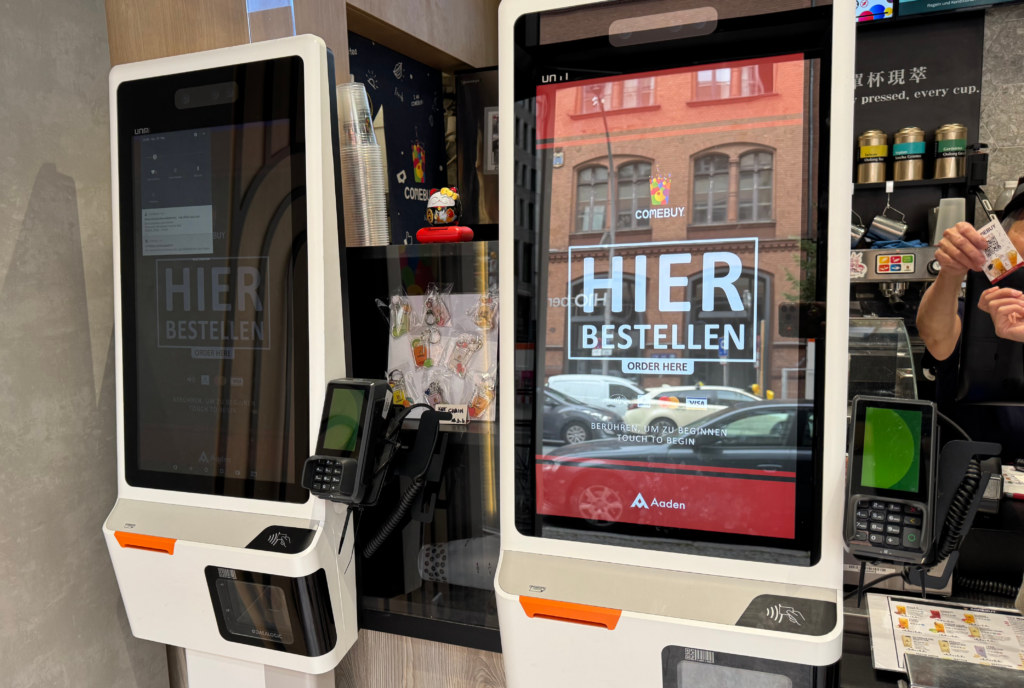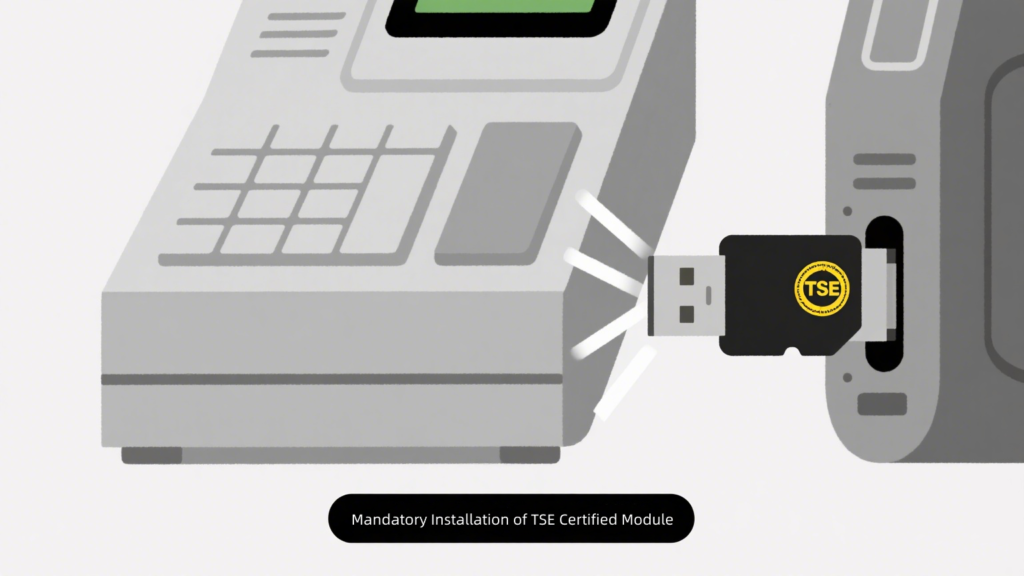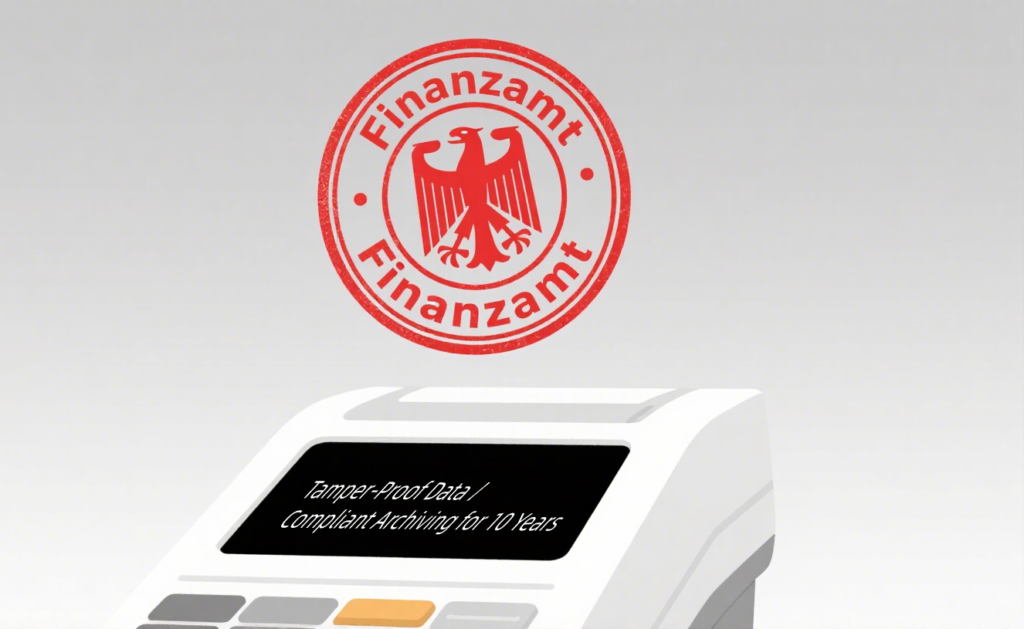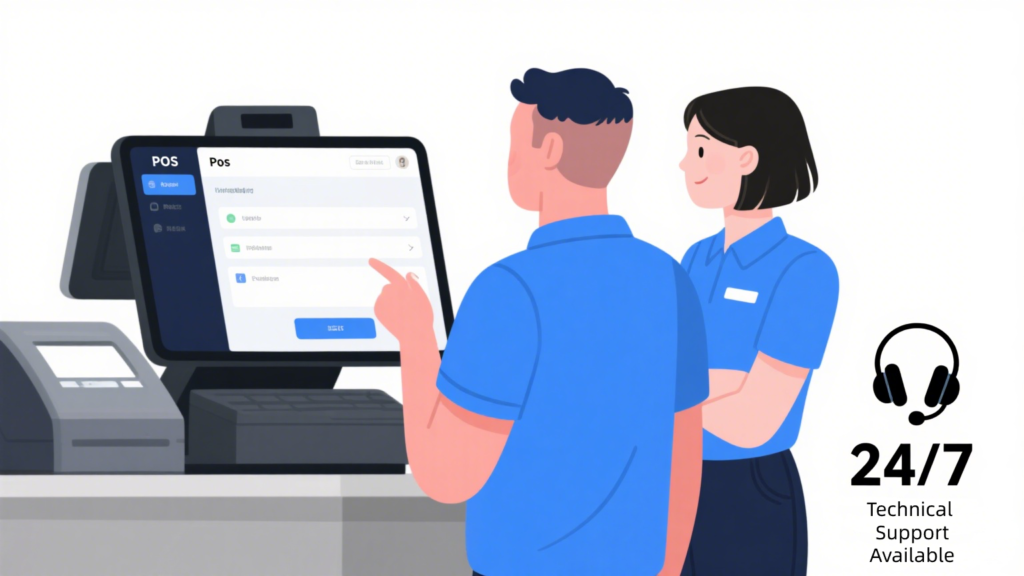
In Germany, a POS system is not just a tool for handling payments—it is the backbone of tax compliance and financial management. With strict regulations such as GoBD (Principles for properly maintaining books, records, and documents in electronic form) and KassenSichV (Cash Register Security Ordinance), restaurant owners must ensure their POS systems are fully compliant. Otherwise, they risk fines, audits, or even legal consequences.
This article explains the most common compliance risks in German restaurants and how to avoid them.
1. Ensure the System is TSE-Compliant
Since 2020, all POS systems in Germany must include a TSE (Technische Sicherheitseinrichtung – technical security module).
Risk: Using a system without TSE or with manipulated data may result in penalties.
Solution: Always choose a system with an officially certified TSE module and keep it updated.
2. Incomplete Data Storage and Backups
The German tax office (Finanzamt) can request full transaction data at any time.
Risk: Lost data, incomplete exports, or non-standard formats.
Solution: Use a POS system with cloud storage or automatic backups, and keep all records for at least 10 years, as required by law.

3. Lack of Transparency & “Black Bookkeeping” Risks
Some owners may be tempted to manipulate records for convenience, but in Germany this carries serious risks.
Risk: Systems that allow deleting or altering past orders may be flagged as tax evasion.
Solution: Select a system with tamper-proof logs and full audit trails.
4. Missing DSFinV-K Export Function
The tax authorities can conduct unannounced audits and demand exports in DSFinV-K format.
Risk: Inability to provide data quickly and in the correct format.
Solution: Ensure your POS system includes a one-click DSFinV-K export function.

5. Poor Staff Training Leads to Violations
Even with a compliant POS system, incorrect use by employees can create problems.
Risk: Cashiers cancel orders improperly or fail to issue receipts.
Solution: Provide staff training and regularly review transaction logs.
6. Unreliable Providers Without Long-Term Support
Cheap POS providers often lack updates and regulatory maintenance.
Risk: A system that is compliant today may not meet new requirements tomorrow.
Solution: Choose a provider with long-term updates, customer support, and proven compliance expertise.

Conclusion
In Germany’s restaurant industry, POS compliance is directly tied to legal security and business continuity. By ensuring that your system meets GoBD, KassenSichV, and TSE requirements, you not only protect your business from fines but also run your restaurant more transparently and efficiently.
👉 Looking for a secure and compliant solution? Request a free demo of Aaden-POS today and start your restaurant journey with peace of mind.

